
Pathways: The search for answers and healing for families of missing children
Warning: This story contains details about residential schools and the search for missing children.
Imagine sending your child to school and never seeing them again. For many Yukon families, it’s a reality they have lived with for decades.
“There's a lot of broken hearts out there,” says Judy Gingell. “People don't have the answers.”
Judy is the chair of the Yukon Residential Schools and Missing Children Project, a group dedicated to finding children missing from the territory’s residential schools.
Residential schools operated in the Yukon from 1903 to 1985. During that time, there were six residential schools in the territory: Chooutla School in Carcross; Coudert Hall, Yukon Hall and Whitehorse Baptist Mission in Whitehorse; the Shingle Point School in Shingle Point on the Yukon’s Arctic coast; and St. Pauls Hostel in Dawson. The Lower Post School in northern B.C. also housed Yukon First Nations students. Each school was operated by a different religious order with funding from the federal government.
Residential schools were hard places to be a child. Some children who left for these schools never returned home. In some cases, children got sick and were sent to hospitals outside the territory, where they died and were buried; in other cases, details are still unknown. Often, families were simply never told what happened to their children.
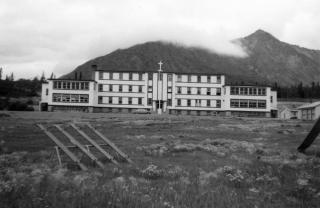
This is the truth of truth and reconciliation
The Yukon Residential Schools and Missing Children Project wants to try to find out what happened to them and help bring some closure for families still grieving from their loss.
“This is the truth of truth and reconciliation,” says Judy.
Judy, a respected Kwanlin Dün Elder, leader and survivor of residential schools, has been involved with the project since 2021.
“Knowing what happened to your family, to your people, and in your communities is essential to healing,” she says.
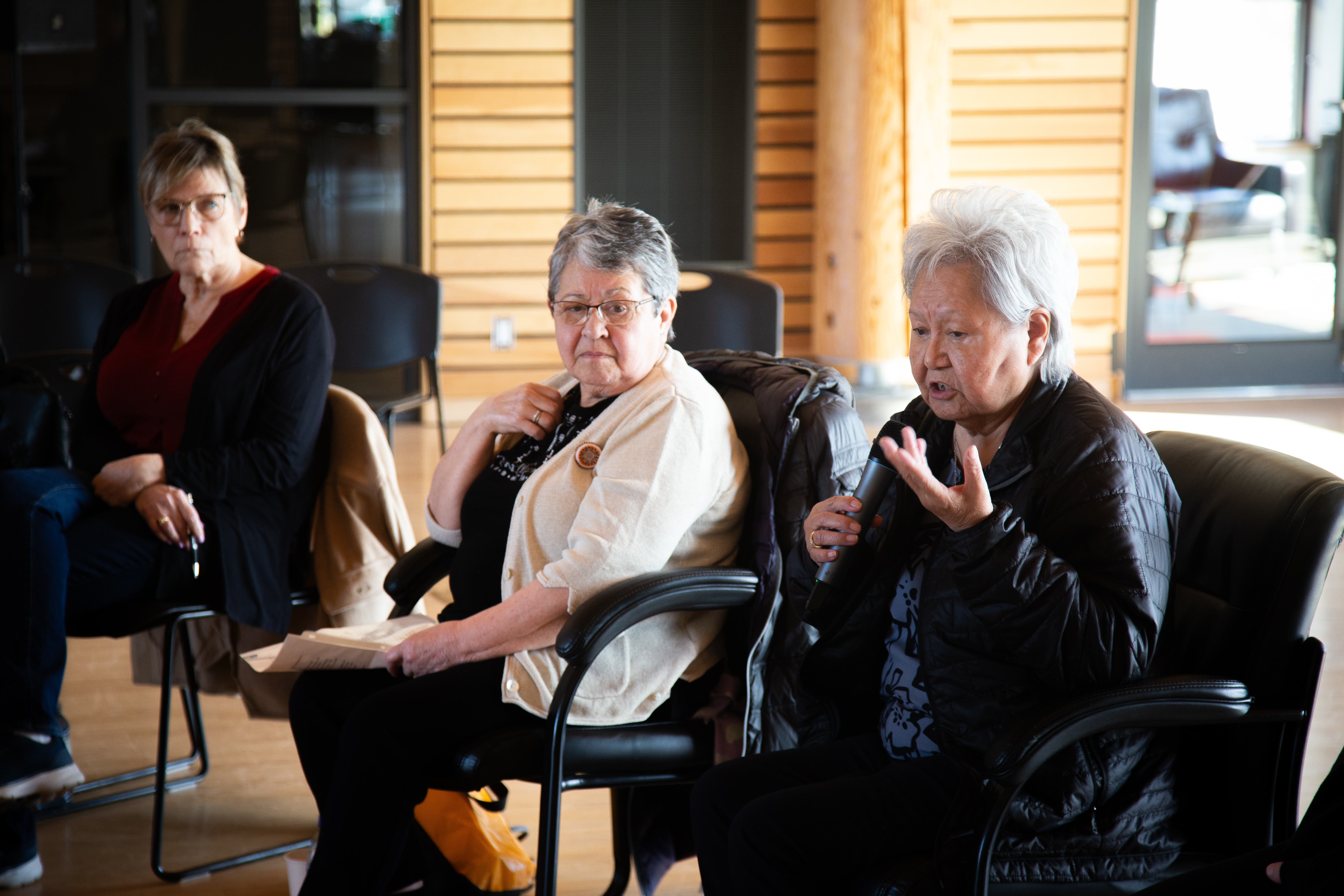
A collaborative effort
The project is run by a working group composed of representatives from each First Nation, who have taken on this important and challenging work for all Yukon First Nations.
The working group is starting their search for answers at the Chooutla Residential School, which ran from 1903 to 1969. More than 1300 students from across the Yukon, Northwest Territories and northern British Columbia were forced to attend. The building was finally demolished in 1993.
The Yukon is the only region in Canada taking a coordinated, territory-wide approach to searching for missing Indigenous children.
“We are all in this together,” says Judy. “Children from throughout the Yukon went to those residential schools. So it only makes sense that we all come together as one, support each other and take a united front on this issue.”
The team meets regularly with working group members and First Nations leaders and works with communities to determine how to carry out this sensitive work.
Deborah Dupont, the project manager, explains that the working group is gathering information from a variety of sources to try to find the answers that families and communities are looking for. The project has contracted the historical research firm, Know History, to conduct archival research.
During its work, the Truth and Reconciliation Commission identified 20 students who went missing from the Chooutla Residential School, but further research has so far identified 33 deaths. The number may grow as research continues.
The working group is also interviewing survivors for their first-hand accounts of children who died or went missing. That information can help the team decide where a ground-penetrating radar search in the Chooutla Residential School area should take place to identify potential unmarked graves.
Unfinished business
Harold Gatensby is a survivor of Chooulta Residential School and lives near the site. He says people who live in the area know the spirits of children are still there, but he says there’s nothing to be frightened of. “They are just saying, ‘we’re here’,” he says. “Those children—the spirits that are wandering around—want to be acknowledged. They are making their presence known because we need to do something about it.”
He says there’s some peace that comes with acknowledgement.
“We have some unfinished business here to take care of,” says Harold. “In my own experience, I've been living on this site for 40 years, we're just getting started and cleaning up the mess and legacy that it left behind for us.”
Answers and ongoing questions
The working group is at a critical juncture with their Chooutla investigation. GeoScan completed its initial ground-penetrating work this summer, and has shared the results with the working group.
GeoScan’s report identified 15 potential grave sites near the Chooutla school. They say these findings are consistent with community and Survivor stories.
Archival research could help shed some more light for grieving families. In some cases archival records are showing where children were buried when they were sent to hospitals in other provinces. This information can help families find closure and hold ceremonies.
This is what inspires the working group to keep up their work.
“This is work that needs to be done so it can bring some peace to our people. How many years have they been sitting there, always wondering?” says Judy.
The working group has shared GeoScan and Know History’s findings with First Nations leaders to help decide what should be done next. It is clear to Judy that this work must be driven by First Nation communities and that ceremony will play a vital huge role in healing and closure. The working group will work closely with communities to identify appropriate ways to address the findings of the search.
Information recovered through the project will eventually be stored in a First Nations-managed database, memorializing the history of Yukon’s residential schools.
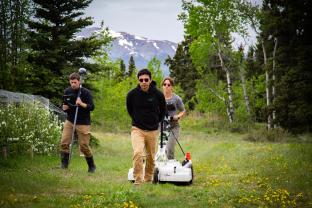
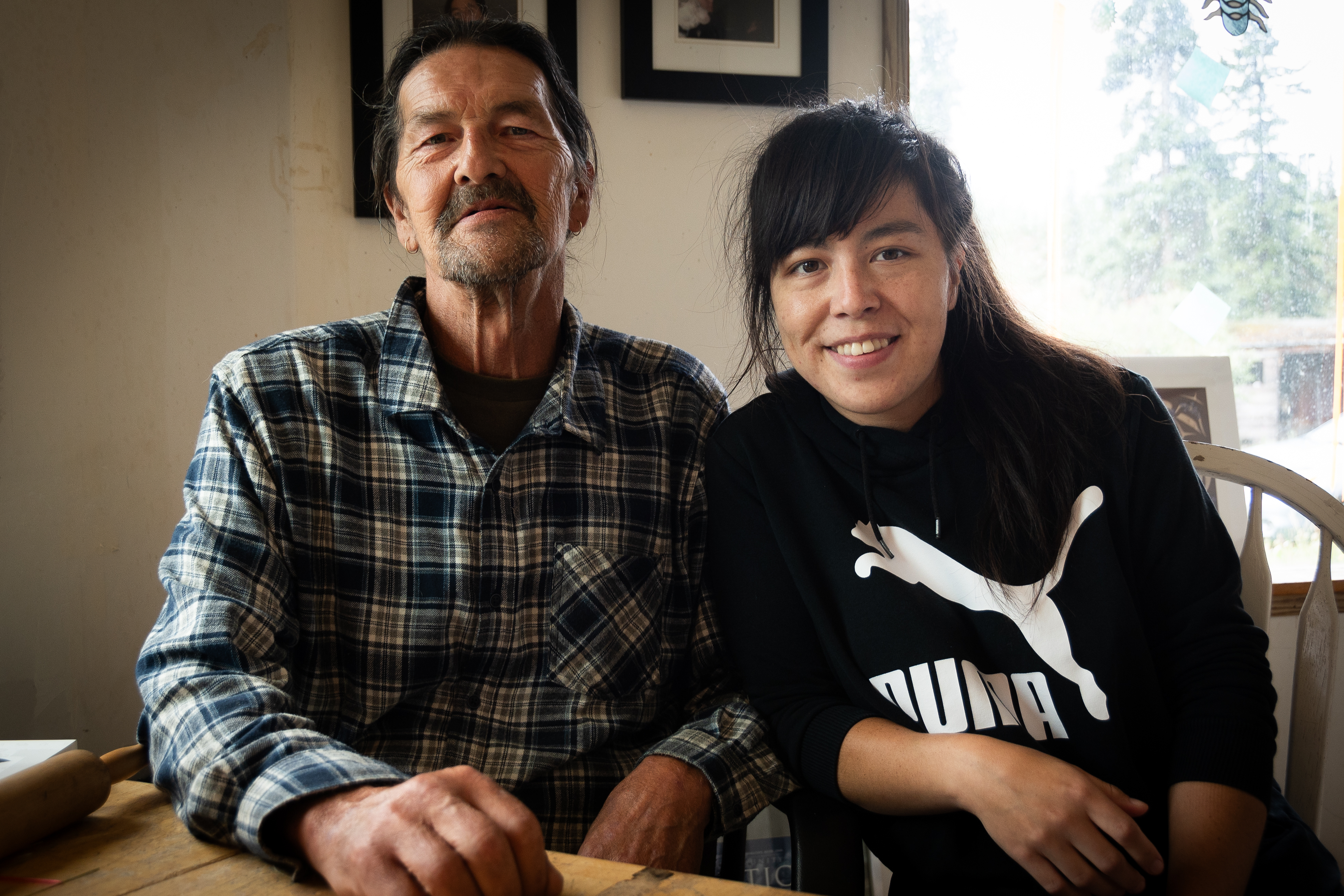
Healing a painful legacy
“A lot of our people drink and they're on drugs. One of the biggest reasons is to keep their feelings numb,” says Judy. “They get flashbacks, and a lot of us weren't taught how to be parents.”
Judy reflects on her own experience. “We were taught to speak when asked to speak, be quiet or you get a strap.”
“The truth,” Harold explains, “is that until we deal with the impacts of the residential schools, we're not gonna move forward.”
First Nations are incredible people, he says. “What we are now is not who we are. It's what we've become because of a hundred years of oppression, of being told you're no good for nothing, and you'll never amount to anything. That affects people.”
Violet Gatensby is an artist and Harold’s daughter. She says her parents gave her a life they never had, but even still, she says she feels the intergenerational impact of residential schools. “I remember being a kid and feeling scared of not being enough. When I look back now,” she notes, “I'm like, that's what my dad was talking about with the generational trauma.”
Violet is fulfilling her father’s hopes and holding up her culture through artwork. “I do my artwork in a way where people can look at it and be like, wow, what a strong, beautiful culture, rather than seeing that dark history that we all have to acknowledge.”
She created a commemorative piece of art on a chunk of concrete that was part of the steps of the old Chooutla Residential School. She says it represents little kids who made it through the chaos they did not deserve. And the ones who didn’t.
“When I was a kid I remember playing on this rock. Boy, was it ever fun! Then once you learn the history of it, it became something that wasn't fun anymore. I wanted to look at that rock and not think about all those thoughts that I was thinking of. Now when I drive by, it's kind of a sign of hope. We got through this part. Now let's start thinking about the next part.”
Judy says the discussion of residential schools and the information they are uncovering is helping some people to open up. “I'm one of them,” she says. “I've never talked to my children about residential school. You kind of just put it behind you.”
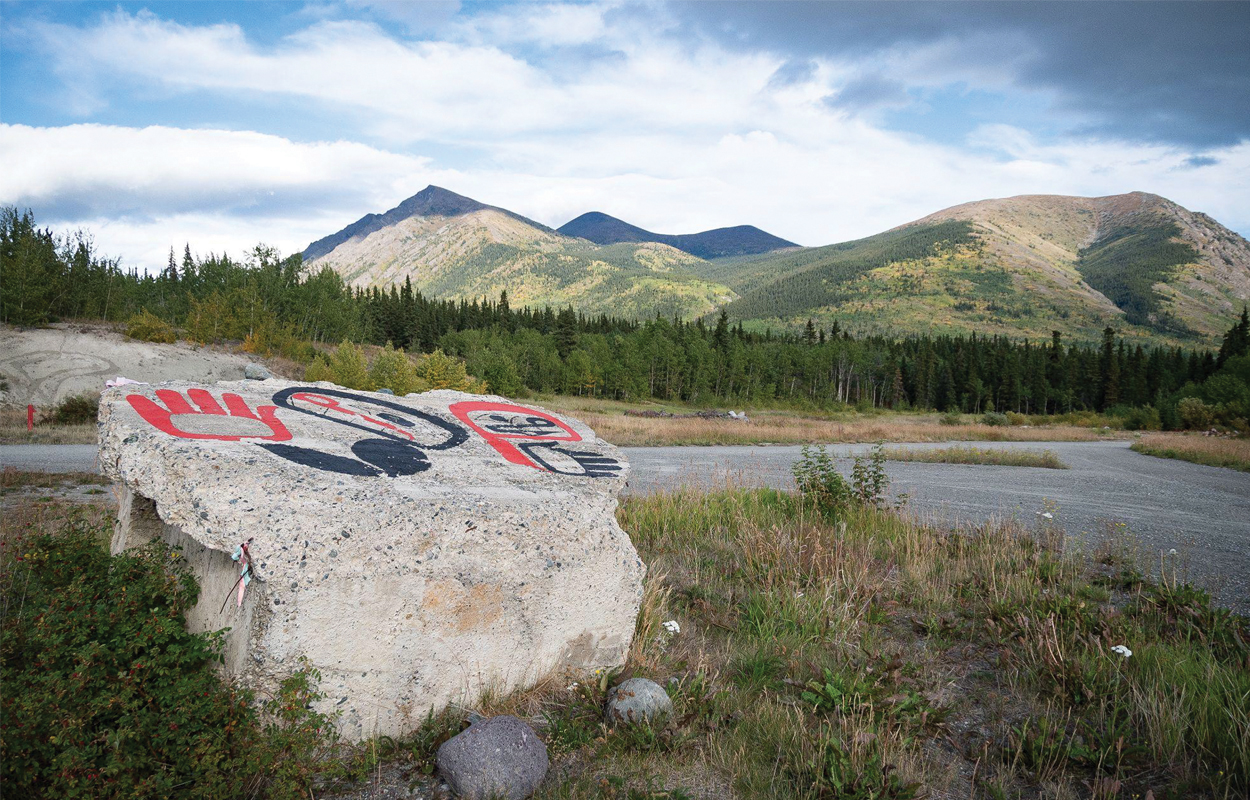
Finding solace in community and culture
The working group understands this process will be painful for many people. As they work with communities, they are sharing the message that communities need to be prepared for the feelings that this process may bring up. Communities need to get ready with their support groups and ceremonies to support healing.
Judy says the project’s work also has the potential to heal.
“This information is going to bring back a lot of things,” Judy acknowledges, “and maybe a lot of parents will start to open up to their children because, honestly, a lot of children didn't even know this happened to their parents.”
Without truth, understanding and answers, residential schools could remain an open wound for many. This project is a big step towards healing for Yukon communities and is truly grounded in the strength, resilience and unity of the Yukon First Nations people.
“The most important part is supporting each other, standing together and being there when we hear something,” says Judy.
Support is available for Survivors and their families
- Call the 24-hour National Indian Residential School Crisis Line at 1-866-925-4419.
- Contact the Committee For Abuse in Residential Schools (CAIRS) outreach and counselling for residential school survivors at 867-667-2247.
- Schedule Government of Yukon Rapid Access Counselling at 867-456-3838
- Contact your First Nation government for supports and services they may have available.